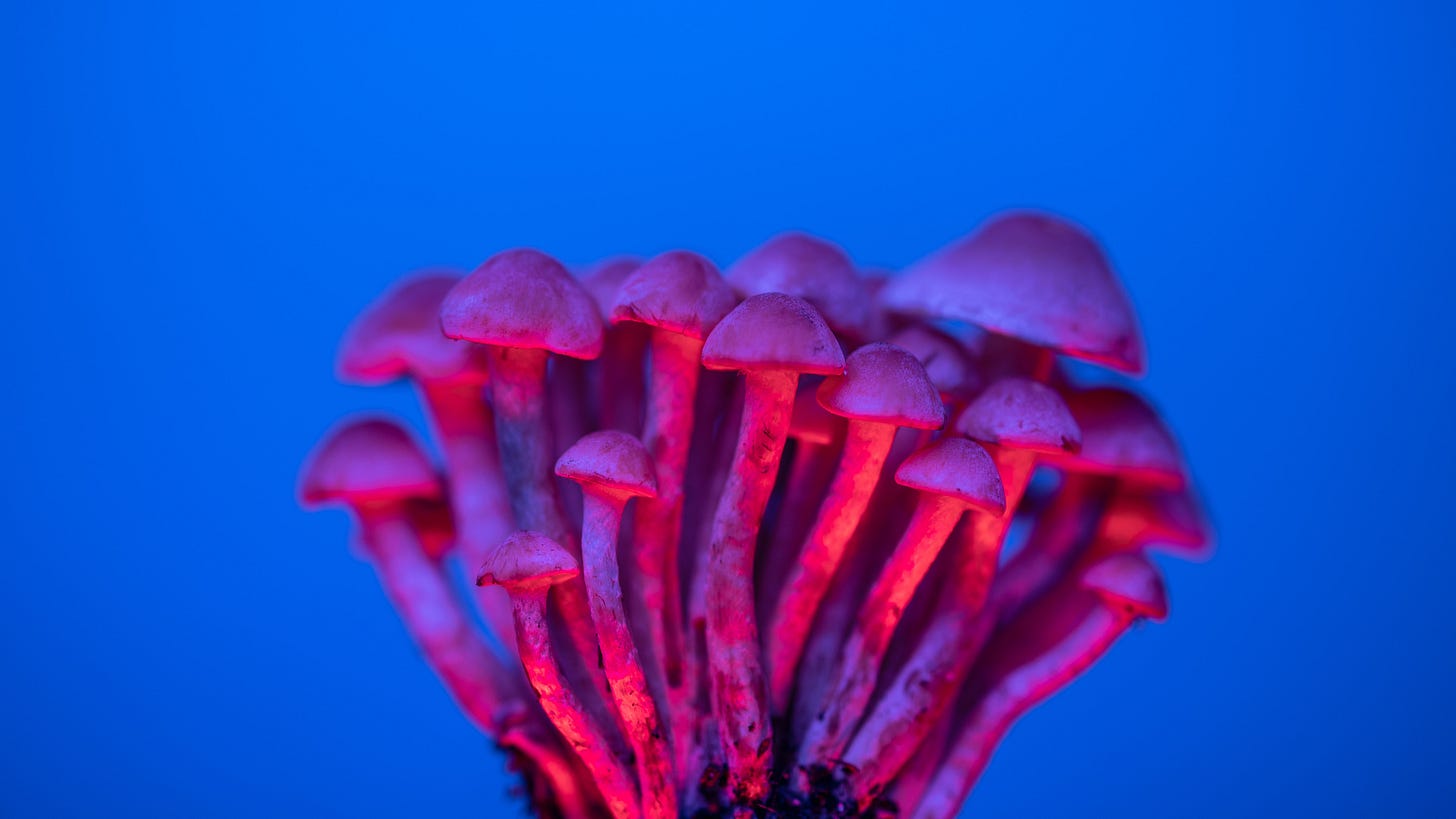Microdosing Psilocybin: Exploring the Therapeutic Potential of the Psychoactive Compound
Unlocking the secrets of Psilocybin
Microdosing is the practice of taking small amounts of a substance, in this case, Psilocybin, the psychoactive compound found in certain species of mushrooms, to elicit specific therapeutic benefits without inducing the full-blown "trip" experience. In recent years, there has been growing interest in the potential medical benefits of microdosing Psilocybin, with several studies suggesting its efficacy in treating a range of conditions.
Psilocybin is a naturally occurring psychoactive substance found in certain species of mushrooms. It has a long history of use in traditional shamanic practices and has been used in religious and spiritual rituals for thousands of years. Including indigenous people in Central and South America. In these cultures, Psilocybin mushrooms were used in religious and spiritual rituals, as well as for medicinal purposes. They were believed to provide a direct connection to the spirit world and were used to treat a variety of physical and mental health conditions.
In the mid-20th century, Psilocybin gained notoriety as a recreational drug, and its use was banned in many countries as a result. It is believed to produce its effects by acting on serotonin receptors in the brain, particularly the 5-HT2A receptors. This interaction is thought to result in changes in neural activity that can lead to alterations in perception, mood, and thought.
One small pilot study published in 2020 found that a single dose of Psilocybin was associated with significant reductions in PTSD symptoms in military veterans with treatment-resistant PTSD. Another pilot study conducted in 2019 suggested that Psilocybin-assisted therapy may be effective in reducing symptoms of depression and anxiety in veterans with PTSD.
There is also some evidence suggesting that Psilocybin may be beneficial for individuals with TBI. A small pilot study published in 2018 found that Psilocybin-assisted therapy led to improvements in mood, sleep, and cognitive function in individuals with TBI. Another pilot study conducted in 2020 suggested that Psilocybin-assisted therapy may help improve quality of life in veterans with TBI by reducing symptoms of depression, anxiety, and pain.
One of the most well-known potential benefits of microdosing Psilocybin is its ability to alleviate depression and anxiety. A small pilot study conducted in 2016 found that microdosing Psilocybin led to a significant reduction in symptoms of depression and anxiety in patients who had not responded to conventional treatments. This was backed up by a recent systematic review of available evidence, which concluded that microdosing Psilocybin holds promise as a treatment for depression and anxiety, and further research is needed to establish its efficacy.
Another area where microdosing Psilocybin has shown potential is in treating addiction. A small study published in 2018 found that microdosing Psilocybin reduced cravings and decreased the severity of withdrawal symptoms in individuals struggling with substance abuse disorders. Similarly, a pilot study published in 2020 suggested that microdosing Psilocybin may help individuals quit smoking by reducing cravings and increasing their chances of success.
In addition to its potential use in treating mental health conditions, microdosing Psilocybin has also shown promise as a treatment for pain. A small study conducted in 2019 found that microdosing Psilocybin significantly reduced chronic pain in patients, with effects lasting for several days. This suggests that Psilocybin may have potential as a non-opioid alternative for managing chronic pain.
The legal status of Psilocybin varies by country. In the United States, Psilocybin is classified as a Schedule I substance under federal law, which means that it is considered to have a high potential for abuse and no currently accepted medical use. However, some cities and states have decriminalized or legalized Psilocybin for medical use. In other countries, such as the Netherlands and Portugal, Psilocybin is decriminalized or allowed for medicinal use under certain circumstances. In still other countries, such as the United Kingdom, Psilocybin is classified as a controlled substance and its use is illegal.
The challenges involved in conducting research and making Psilocybin available as a treatment option are significant and include the legal and regulatory hurdles associated with studying a controlled substance, as well as the need for further research to fully understand its mechanism of action and potential risks and benefits. Despite these challenges, there is growing interest in the potential therapeutic benefits of Psilocybin, and researchers are continuing to study its effects and explore its potential as a treatment option for various mental health conditions.
There are those who support the legalization of Psilocybin for medical use, citing the growing body of research that suggests its therapeutic potential for a variety of mental health conditions. Others argue that more research is needed to fully understand the effects of Psilocybin, particularly with regards to its safety and potential risks, before it should be legalized.
It's worth noting that while these findings are promising, much more research is needed to fully understand the medical benefits of microdosing Psilocybin. Most of the studies conducted to date have been small, and many have significant limitations, such as a lack of control groups and the self-reported nature of the data.
In conclusion, the evidence for the medical benefits of microdosing Psilocybin is still emerging, but what we know so far suggests that it holds great potential as a treatment for a range of conditions, including depression, anxiety, addiction, and pain. Further research is needed to establish its safety and efficacy, and to determine the optimal dosing regimen. A lot is going to have to go into more dedicated research to determine if legalization of Psilocybin is a road worth taking. Until then, individuals who are considering microdosing Psilocybin should consult with a healthcare professional and only obtain Psilocybin from reputable sources.



